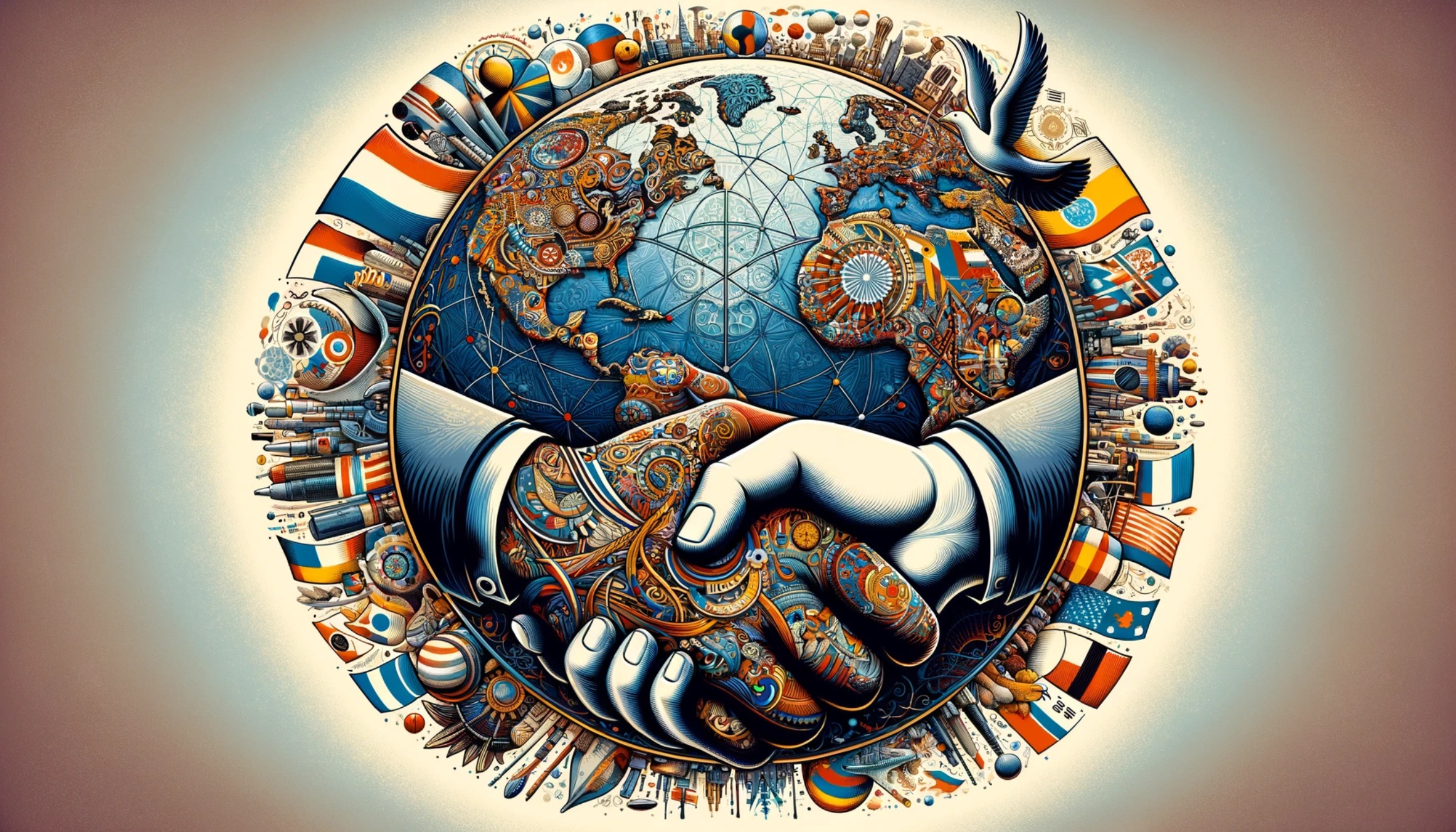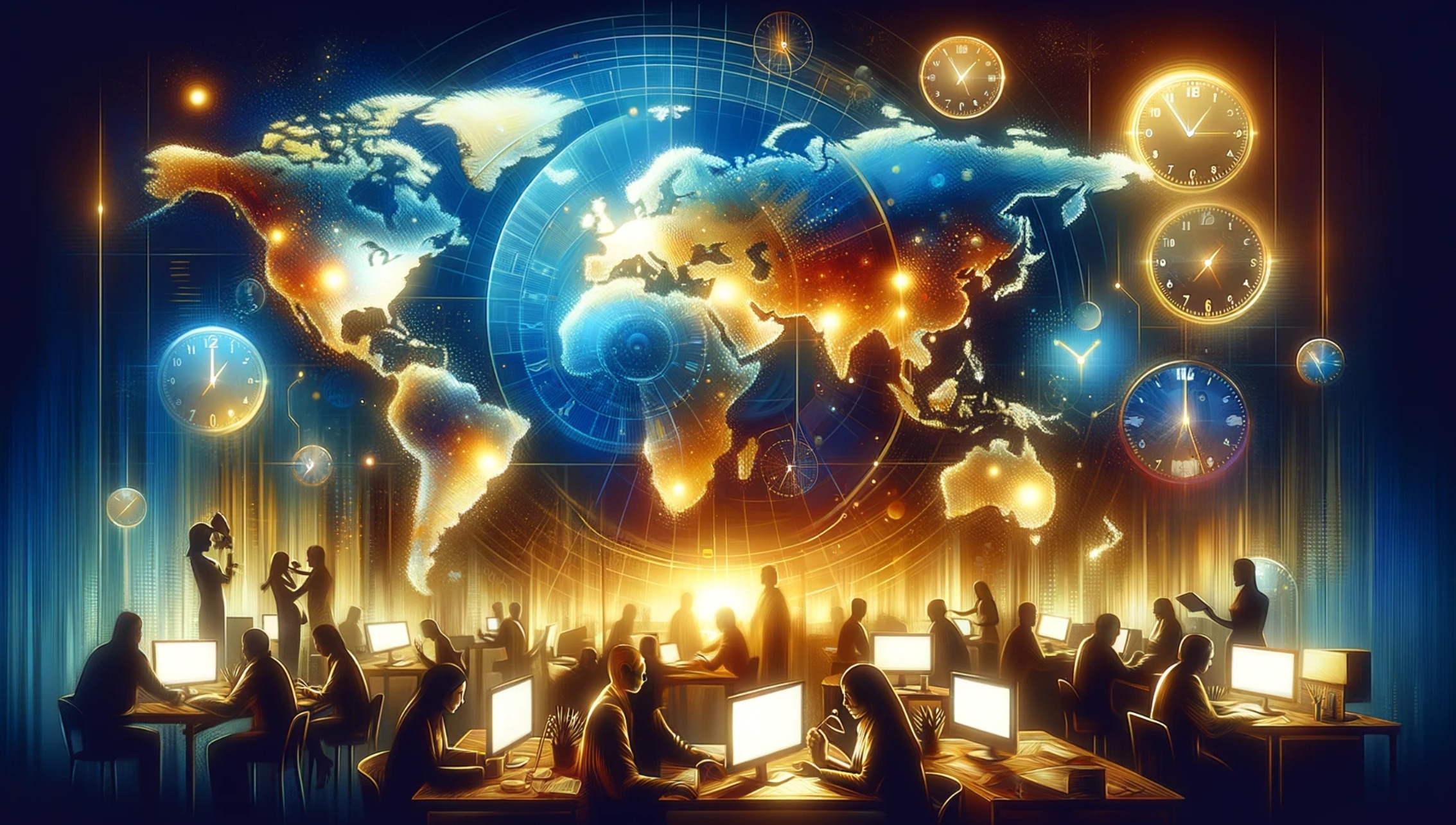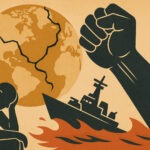Welcome to the bustling world of international relations (IR) — a realm where the clock never stops ticking, and the global stage is constantly set for drama, negotiations, and unexpected plot twists.
Imagine a profession where your workday spans the entire globe’s time zones, reacting to events as they unfold in real-time, from sunrise in Sydney to sunset in San Francisco. This is the domain of global diplomacy and crisis management, where professionals live the reality of being always on call, their decisions echoing across continents.
Diving into this whirlwind of activity, we can’t help but look at the theory that offers a lens through which we view the chaotic dance of international affairs: Realism. It’s like the old wisdom that tells us to expect the unexpected, preparing us for the anarchic nature of world politics where every state is for itself in a never-ending quest for power.
The Essence of Realism in International Relations
Realism, at its core, sees the world as a vast, leaderless arena where states compete for power and security like players in a game of survival. This theory suggests that in the absence of a global government, states must rely on themselves to survive, making power the currency of international relations.
This perspective might sound a bit dark, but it’s incredibly insightful for understanding the daily grind of IR professionals. It teaches us that to navigate the complexities of global diplomacy, one must be always vigilant and ready to act.
A Day in the Life of Global Diplomacy
Now, let’s zoom in on what this looks like day-to-day for those in the trenches of international diplomacy. Imagine starting your day with a briefing on overnight developments — a coup d’état in one country, a breakthrough in peace talks in another, and a looming natural disaster threatening a third. Each requires a different hat: a mediator’s finesse, a strategist’s cunning, and a humanitarian’s heart.
Diplomats and IR professionals live by the pulse of global news, always ready to pivot as new challenges emerge.
The unpredictability is as thrilling as it is daunting. The need for swift, strategic responses is not just a job requirement; it’s the internationalist way of life.

Overnight Reality Shifts
In the whirlwind world of international relations, news can break while half the globe sleeps, only to awaken to a new reality. Recall the shockwaves sent around the world by the sudden outbreak of conflicts in regions that were considered stable, or the unexpected signing of peace treaties in long-standing disputes. This can look like a pandemic, natural disaster, international organization changes, and more.
Then there are the moments of hope — breakthroughs in peace negotiations, such as the historic agreements brokered between nations previously at odds, demonstrating the power of diplomacy and dialogue. Each of these events, be they harrowing or heartening, demanded swift attention and action from the international community, embodying the 24/7 nature of international relations.
Professionals in this field must pivot quickly, strategizing responses, mobilizing resources, and communicating across borders to address these crises and opportunities.
The Stress and Thrill of Hustle Culture in International Relations
Navigating the ceaseless currents of global events is no small feat. International relations professionals often speak of the “hustle culture” that permeates their work — a relentless pace that mirrors the non-stop action on the global stage. This hustle can take its toll, with the pressure to act fast, make the right call under tight timelines, and the emotional weight of dealing with crises that affect millions of lives.
Yet, ask anyone in the thick of it, and they’ll tell you of the unparalleled thrill that comes with the territory. There’s a profound sense of purpose in contributing to global peace, security, and cooperation.
Imagine being part of a team that negotiates a ceasefire, bringing relief to a conflict-torn region, or contributing to a global pact that addresses the climate crisis. These moments of success, often hard-won and the result of tireless work, bring a fulfillment that’s hard to find in any other profession. This is what motivates most students to continue studying IR.
Hustle culture in international relations is a double-edged sword, marked by both stress and satisfaction. It’s a world where professionals are driven by a mission greater than themselves, constantly reminded of the impact of their work on the global stage.
This duality of pressure and pride defines the essence of the field, making it one of the most challenging yet rewarding arenas to work in.

In Conclusion
The field of international relations is defined by its relentless pace and complexity, requiring professionals to be constantly vigilant and responsive to global events. Theories like Realism offer essential frameworks for understanding the strategic behaviors of states in an anarchic international system. Despite the inherent challenges and pressures, working in the field of International Relations provides unparalleled fulfillment through contributions to global peace, security, and cooperation.
The dedication of international relations professionals plays a crucial role in shaping the future of global affairs, highlighting the significance of their work in navigating the ever-changing landscape of international relations.
References
- ChatGPT. (n.d.). OpenAI. https://chat.openai.com/#









No responses yet